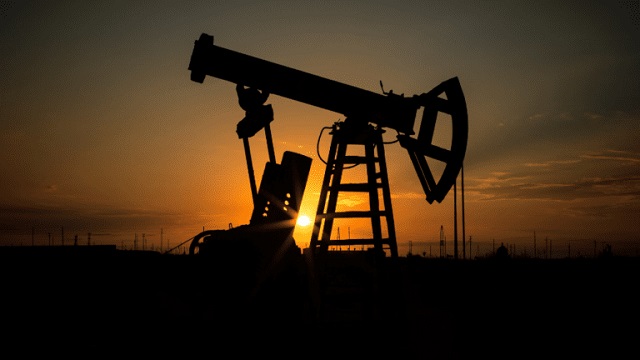Economy
Fossil fuels aren’t going anywhere, we benefit too much from them

From the MacDonald Laurier Institute
By Chris Sankey
Indigenous people are finally reaping the rewards.
Over the last eight years we have experienced an unprecedented push from environmental activists to phase out fossil fuels. The Government of Canada seems to think it is possible. During question period in the Senate earlier this year, Sen. David Wells noted that, according to the Liberals, the energy transition “will cost $100-$125 billion per year at least to 2050,” and asked “When Canada only emits 1.5 per cent of global emissions, how does this expenditure make sense?”
Let me repeat that. $125 billion each year.
Who is going to pay for this? This is simply not possible, unless people want to see the Canadian economy in ruins.
Without fossil fuels, life as we know it would not be possible. State-of-the-art lifesaving medical equipment comes from fossil fuels and critical minerals from mining. Critical infrastructure, vehicles, planes, trains, container ships, ferries, and the billions of household necessities we buy from Canadian Tire, Walmart, Amazon and Ikea come from fossil fuels and help us function in our everyday lives. Without these needs we simply do not prosper.
Take for instance the environmental marches we see on our streets. The protesters seemingly have zero understanding of what makes their marches possible? Yes, fossil fuels. If you are going to protest for “Just Stop Oil,” then climate activists have to stop blocking traffic, because an idling vehicle is so much harder on the environment. And what about showing up in clothing and holding up signs made of hydrocarbons demonstrates your commitment to saving the planet? Hypocrisy? Absolutely.
From the moment we come out of our mother’s body, fossil fuels make our lives better. From cradle to grave, our lives are intertwined with fossil fuels. Just think of the act of giving birth. Chances are the mother was rushed to hospital in an ambulance, helicopter, plane, your personal vehicle, or taxi. As grandparents, siblings, uncles, aunts and cousins arrive at the hospital in their fossil fuel-powered cars and trucks smiling ear to ear welcoming the new baby to the family. They show up with gifts likely made from fossil fuels and critical minerals. If it is not made from fossil fuels, they were most definitely transported to the store using fossil fuels.
It is time we stop kidding ourselves that we can step away from the oil and gas wealth upon which our country benefits so much.
Only now, it will be Indigenous communities who are going to lead the multi-billion-dollar opportunity and put Canada at the front of global markets as a preferred supplier. For far too long, activist’s voice have been the determining factor in how governments make decisions on this necessary industry in our territories.
We need to make sure we have a framework that lays out a technology transition where we produce cleaner oil and gas by using new technology that will reduce emissions and grow our economies.
Since the Liberals were elected in 2015 everywhere we turn, our resource sector is being badly hurt. Forestry, fishing, oil and gas are screaming for more production, but federal regulations threaten to not only destroy the energy industry, but all industries with the emissions cap. Renewables are costing taxpayers billions in subsidies and it will not end there.
Indigenous people have always took care of the environment and grown our economies. From fishing, logging, farming and hunting, we used fossil fuels to make it happen.
Obviously, humans did not use fossil fuels prior to the industrial revolution and indigenous people made hunting weapons out of wood and stone. Life was challenging for our ancestors back then; life expectancy was short for all people.
Over time, technology in the energy sector changed for the better. I would be remiss if I did not include the fact that industry did not always have modern clean tech; emissions were high and cancer-causing effects were widespread. That introduced chemicals foreign to indigenous people. Like all things, newer and safer technology emerged. Making life much easier and convenient.
However, historically speaking indigenous people lived on fat and protein. Everything we ate was natural. Like all things that come and go, European contact forever changed our way of life. We were greatly impacted in every possible manner, from social, cultural, status and creed. But like we always have, we persevered like our ancestors wanted us too.
This is our turn to take our rightful place on the global stage. We are watching it play out in real time around the world. Energy and food security is the number one priority around the world. Indigenous communities near and far are leading the way in the pursuit of sustainable development, but government and activists are hindering our ability to progress.
It is important that Canadians be realistic when it comes to the use of oil and gas. All of us want to leave our planet better for the next generation. To do so, we must manage expectations. Many countries are just now finally transitioning to oil and gas from more environmentally harmful coal and countries like India will not be carbon neutral until 2070 or later.
Our country has an abundance of resources that the world wants. They are literally knocking on our door to get access to our wealth. We can help countries like China, India and Indonesia move away from burning coal and wood, and thereby help lift millions out of certain poverty, and improve their health.
New climate change technology has emerged in the energy sector, such as carbon capture and storage that will reduce and eliminate emissions and the need for diluent in oil pipelines. Our combination of Indigenous knowledge and history to the land makes for a stronger argument to partner with Indigenous communities. Alignment amongst indigenous communities is key to securing a project. Proper alignment will de-risk a project and attract investment and industry to the table where we will have a seat and even equity.
Engagement with Indigenous communities is the solution. The vast majority of our people are not against development. We are only against development when we are excluded from the opportunities, or if the evaluation process was developed without Indigenous input.
It is not rocket-science. Include the people whose territory you want to build on. This is an opportunity to build relationships through meaningful dialogue and trust. We must have nation to nation dialogue and build leadership to leadership relationships. No hidden agendas, just up-front, honest conversations about oil and gas and the costs and benefits of development.
I am tired of watching our people struggle. Our people do not want to watch the prosperity boat sail by Poverty Island. Markets do not wait for anyone. We cannot keep waiting for the right time. We cannot keep waiting for life to get better. First Nations can make it better by being at the economic table where our people can bring traditional knowledge to industry and make decisions in the best interests of our communities. Whether we agree or not in the first instance, we need to be in the room working towards a brighter future, because at the end of the day we all need rubber boots too.
Chris Sankey is a Senior fellow at the MacDonald Laurier Institute, a former Elected Councilor for the Lax Kw Alaams Band and Businessman.
Business
Carney budget doubles down on Trudeau-era policies

From the Fraser Institute
By Kenneth P. Green and Elmira Aliakbari
The Carney government tabled its first budget, which includes major new spending initiatives to promote a so-called “green economy,” and maintains greenhouse gas (GHG)-emission extinction as a central operating principle of Canadian governance.
The budget leaves untouched most of the legislative dampers on Canada’s fossil fuel sector (oil, gas, coal) of the last 10 years, while pouring still more money into theoretically “green” projects such as additional (and speculative new types) of nuclear power, electrical transmission to service “green” energy production, continued tax credits for alternative fuels such as hydrogen, and more. Adding insult to injury, the budget discusses “enhancing” (read: likely increasing) the carbon tax on industrial emitters across Canada, and tightening controls over provinces to ensure they meet new federal tax targets.
Over the past decade, Ottawa introduced numerous regulations to restrict oil and gas development and again accelerate the growth of the green sector. Key initiatives include Ottawa’s arbitrary cap on GHG emissions for the oil and gas sector, which will restrict production; stricter regulations for methane emissions in the oil and gas industry, which will also likely restrict production; “clean electricity” regulations that aim to decarbonize Canada’s electricity generation; Bill C-69 (which introduced subjective ill-defined criteria into the evaluation of energy projects); and Bill C-48, known as the oil tanker ban on the west coast, which limits Canadian exports to Asian and other non-U.S. markets.
At the same time, governments launched a wide range of spending initiatives, tax credits and regulations to promote the green economy, which basically includes industries and technologies that aim to reduce pollution and use cleaner energy sources. Between 2014/15 and 2024/25, federal spending on green initiatives (such as subsidizing renewable power, providing incentives for electric vehicles and charging infrastructure, funding for building retrofits, and support for alternative fuels such as hydrogen, etc.) went from $0.6 billion to $23 billion—a 38-fold increase. Altogether, since 2014, Ottawa and provincial governments in the country’s four largest provinces (Ontario, British Columbia, Quebec and Alberta) have spent and foregone revenues of at least $158 billion to promote the green sector.
Yet, despite the government’s massive spending and heavy regulation to constrain the fossil fuel industry and promote the green sector, the outcomes have been extremely disappointing. In 2014, the green sector accounted for 3.1 per cent of Canada’s economic output, and by 2023, that share had only slightly grown to 3.6 per cent. Put simply, despite massive spending, the sector’s contribution to Canada’s economy has barely changed. In addition, between 2014 and 2023, despite billions in government spending to promote the green sector, only 68,000 new jobs were added in this sector, many of them in already established fields such as waste management and hydroelectric power. The sector’s contribution to national employment remains small, representing only 2 per cent of total jobs in the country.
Not surprisingly, this combination of massive government spending and heavy-handed regulation have contributed to Canada’s economic stagnation in recent years. As documented by our colleagues, Canadian living standards—measured by per-person GDP—were lower in the second quarter of 2025 than six years earlier, suggesting we are poorer today than we were six years ago.
But for Prime Minister Carney, apparently, past failures do not temper future plans, as the budget either reaffirms or expands upon the failed plans of the past decade. No lessons appear to have even been considered, much less learned from past failures.
There had been some hope that Carney’s first budget would include some reflection of how badly the natural resource and energy policies of the Trudeau government have hurt Canada’s economy.
But other than some language obfuscation—“investment” vs. “spending,” “competitiveness” of GHG controls (not economy), and the “green” energy economy vs. the “conventional” energy economy—this is a Trudeau-continuance business-as-usual agenda on steroids. Yes, they will allow some slight deceptive rollbacks to proceed (such as rolling the consumer carbon tax into the industrial carbon tax rather than eliminating it), and may allow still more carbon taxes to render at least one onerous Trudeau-era regulation (the oil and gas cap) to be rendered moot, but that’s stunningly weak tea on policy reform.
The first Carney budget could and likely will, if passed, continue the economic stagnation plaguing Canada. That does not bode well for the future prosperity of Canadians.
Daily Caller
UN Chief Rages Against Dying Of Climate Alarm Light


From the Daily Caller News Foundation
The light of the global climate alarm movement has faded throughout 2025, as even narrative-pushing luminaries like Bill Gates have begun admitting. But that doesn’t mean the bitter clingers to the net-zero by 2050 dogma will go away quietly. No one serves more ably as the poster child of this resistance to reality than U.N. chief Antonio Guterres, who is preparing to host the UN’s annual climate conference, COP30, in Brazil on Nov. 10.
In a speech on Monday, Guterres echoed poet Dylan Thomas’s advice to aging men and women in his famed poem, “Do not go gentle into that good night:”
Do not go gentle into that good night,
Old age should burn and rave at close of day;
Rage, rage against the dying of the light.
Dear Readers:
As a nonprofit, we are dependent on the generosity of our readers.
Please consider making a small donation of any amount here.
Thank you!
Though wise men at their end know dark is right,
Because their words had forked no lightning they
Do not go gentle into that good night.
Seeing that his own words have “forked no lightning,” Guterres raged, raged against the dying of the climate alarm light.
“Governments must arrive at the upcoming COP30 meeting in Brazil with concrete plans to slash their own emissions over the next decade while also delivering climate justice to those on the front lines of a crisis they did little to cause,” Guterres demanded, adding, “Just look at Jamaica.”
Yes, because, as everyone must assuredly know, the Earth has never produced major hurricanes in the past, so it must be the all-powerful climate change bogeyman that produced this major storm at the end of an unusually slow Atlantic hurricane season.
Actually, Guterres’ order to all national governments to arrive in Belem, Brazil outfitted with aspirational plans to meet the net-zero illusion, which everyone knows can and will never be met, helps explain why President Donald Trump will not be sending an official U.S. delegation. Trump has repeatedly made clear – most recently during his September speech before the U.N. General Assembly – that he views the entire climate change agenda as a huge scam. Why waste taxpayer money in pursuit of a fantasy when he’s had so much success pursuing a more productive agenda via direct negotiations with national leaders around the world?
“The Green New Scam would have killed America if President Trump had not been elected to implement his commonsense energy agenda…focused on utilizing the liquid gold under our feet to strengthen our grid stability and drive down costs for American families and businesses,” Taylor Rogers, a White House spokeswoman, said in a statement to the Guardian. “President Trump will not jeopardize our country’s economic and national security to pursue vague climate goals that are killing other countries,” she added.
The Guardian claims that Rogers’s use of the word “scam” refers to the Green New Deal policies pursued by Joe Biden. But that’s only part of it: The President views the entire net-zero project as a global scam designed to support a variety of wealth redistribution schemes and give momentum to the increasingly authoritarian forms of government we currently see cracking down in formerly free democracies like the U.K., Canada, Germany, France, Australia and other western developed nations.
Trump’s focused efforts on reversing vast swaths of Biden’s destructive agenda is undoing 16 years of command-and-control regulatory schemes implemented by the federal government. The resulting elimination of Inflation Reduction Act subsidies is already slowing the growth of the electric vehicles industry and impacting the rise of wind and solar generation as well.
But the impacts are international, too, as developing nations across the world shift direction to be able to do business with the world’s most powerful economy and developed nations in Europe and elsewhere grudgingly strive to remain competitive. Gates provided a clear wake-up call highlighting this global trend with his sudden departure from climate alarmist orthodoxy and its dogmatic narratives with his shift in rhetoric and planned investments laid out in last week’s long blog post.
Guterres, as the titular leader of the climate movement’s center of globalist messaging, sees his perch under assault and responded with a rhetorical effort to reassert his authority. We can expect the secretary general to keep raging as his influence wanes and he is replaced by someone whose own words might fork some lightning.
David Blackmon is an energy writer and consultant based in Texas. He spent 40 years in the oil and gas business, where he specialized in public policy and communications.
-

 Censorship Industrial Complex2 days ago
Censorship Industrial Complex2 days agoHow the UK and Canada Are Leading the West’s Descent into Digital Authoritarianism
-

 Business2 days ago
Business2 days agoCapital Flight Signals No Confidence In Carney’s Agenda
-

 International2 days ago
International2 days agoThe capital of capitalism elects a socialist mayor
-

 Energy1 day ago
Energy1 day agoEby should put up, shut up, or pay up
-

 Business1 day ago
Business1 day agoPulling back the curtain on the Carney government’s first budget
-

 Daily Caller1 day ago
Daily Caller1 day agoUS Eating Canada’s Lunch While Liberals Stall – Trump Admin Announces Record-Shattering Energy Report
-

 Business1 day ago
Business1 day agoThe Liberal budget is a massive FAILURE: Former Liberal Cabinet Member Dan McTeague
-

 Business22 hours ago
Business22 hours agoCarney’s budget spares tax status of Canadian churches, pro-life groups after backlash







